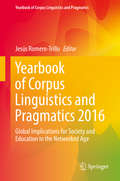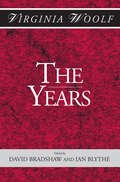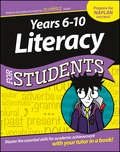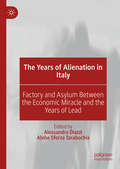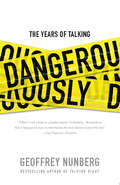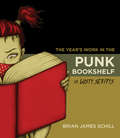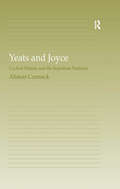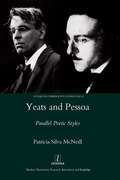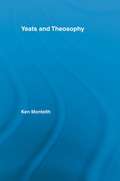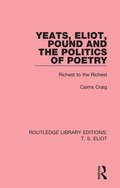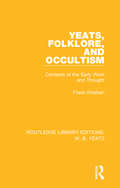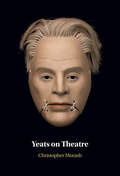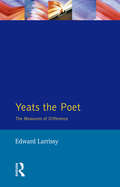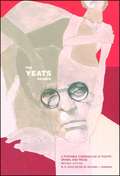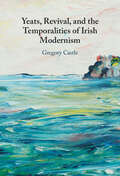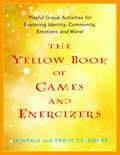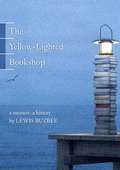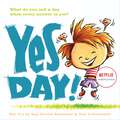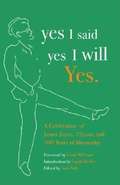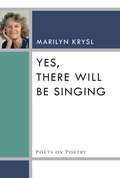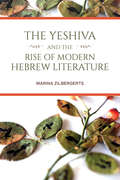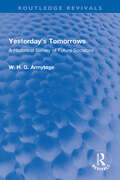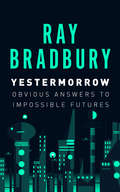- Table View
- List View
Yearbook of Corpus Linguistics and Pragmatics 2016
by Jesús Romero-TrilloThe present volume of the Yearbook of Corpus Linguistics and Pragmatics series, presents cutting-edge corpus pragmatics research on language use in new social and educational environments. The Yearbook of Corpus Linguistics and Pragmatics offers a platform to scholars who carry out rigorous and interdisciplinary research on language in real use. Corpus Linguistics and Pragmatics have traditionally represented two paths of scientific research, parallel but often mutually exclusive and excluding. Corpus Linguistics can offer a precise methodology based on mathematics and statistics while Pragmatics strives to interpret intended meaning in real language. This series will give readers insight into how pragmatics can be used to explain real corpus data, and how corpora can illustrate pragmatic intuitions.
The Years: Large Print (Shakespeare Head Press Edition of Virginia Woolf #4)
by Virginia WoolfThis edition takes the first British edition of The Years as its copy-text, and includes a comprehensive introduction, extensive explanatory notes, and a full list of textual variants and editorial emendations. Features a comprehensive introduction, detailing the lengthy process of the composition and revision of the novel, and its subsequent publication history Includes extensive explanatory notes, highlighting the political, historical, social and literary contexts of the novel Provides a full account of the variants between the first British and American editions, supplemented by a list of editorial emendations made in this present edition
Years 6-10 Literacy For Students
by Consumer DummiesYour tutor in a book! Master the essential literacy skills for success! 'I don't know how to do this' is a refrain heard whilst many a student is doing homework. Parents are increasingly called on for assistance, but are themselves struggling to help their children. Years 6-10 Literacy For Students is a reference guide for both students and parents, aiming to fill the gaps in a student's knowledge base, build confidence and reduce stress. Written with the same friendly, how-to approach of the successful For Dummies books, this new educational reference will empower students and develop their literacy skills for exams, NAPLAN testing and, most importantly, life beyond secondary school. With worries that students are being taught to pass tests at the expense of understanding -- this guide will help students increase their understanding of grammar and writing. Master grammar and communicate ideas more effectively Improve writing and comprehension skills Complete homework and prepare for tests with confidence Save money on expensive tutors. Years 6-10 Literacy For Students empowers students to improve their educational outcomes.
The Years of Alienation in Italy: Factory and Asylum Between the Economic Miracle and the Years of Lead
by Alessandra Diazzi Alvise Sforza TarabochiaThe Years of Alienation in Italy offers an interdisciplinary overview of the socio-political, psychological, philosophical, and cultural meanings that the notion of alienation took on in Italy between the 1960s and the 1970s. It addresses alienation as a social condition of estrangement caused by the capitalist system, a pathological state of the mind and an ontological condition of subjectivity. Contributors to the edited volume explore the pervasive influence this multifarious concept had on literature, cinema, architecture, and photography in Italy. The collection also theoretically reassesses the notion of alienation from a novel perspective, employing Italy as a paradigmatic case study in its pioneering role in the revolution of mental health care and factory work during these two decades.
The Years of Talking Dangerously
by Geoffrey Nunberg"There has never been,” Nunberg writes, "an age as wary as ours of the tricks words can play, obscuring distinctions and smoothing over the corrugations of the actual world. . . . Yet as advertisers and marketers know, our mistrust of words doesn’t inoculate us against them. ” These are the years of talking dangerously, and Nunberg is a sure guide to the pitfalls. With illuminating intelligence and devastating humor, Nunberg decodes the changing syntax ofTime Magazine, explains why grammar buffs are drawn to sarcasm, and deftly unpacks the telling phrases of our national conversation, fromprogressivetoelitetochange-not to mentionnational conversationitself.
The Year’s Work in the Punk Bookshelf, Or, Lusty Scripts
by Brian James SchillThis is the story of the books punks read and why they read them. The Year’s Work in the Punk Bookshelf challenges the stereotype that punk rock is a bastion of violent, drug-addicted, uneducated drop outs. Brian James Schill explores how, for decades, punk and postpunk subculture has absorbed, debated, and reintroduced into popular culture, philosophy, classic literature, poetry, and avant-garde theatre. Connecting punk to not only Hegel, Nietzsche, and Freud, but Dostoevsky, Rimbaud, Henry Miller, Kafka, and Philip K. Dick, this work documents and interprets the subculture’s literary history. In detailing the punk bookshelf, Schill contends that punk’s literary and intellectual interests can be traced to the sense of shame (whether physical, socioeconomic, cultural, or sexual) its advocates feel in the face of a shameless market economy that not only preoccupied many of punks’ favorite writers but generated the entire punk polemic.
Yeats and Joyce: Cyclical History and the Reprobate Tradition
by Alistair CormackWhile postcolonial studies has contributed much to our understanding of Irish modernism, it has also encouraged less-than-accurate portrayals of Joyce and Yeats as polar opposites: Yeats as the inventor of Irish mystique and Joyce as its relentless demythologiser. Alistair Cormack's complex study provides a corrective to these misleading characterisations by analysing the tools Yeats and Joyce themselves used to challenge representation in the postcolonial era. Despite their very different histories, Cormack suggests, these two writers can be seen as allies in their insistence on the heresy of the imagination. Reinvigorating and politicising the history of ideas as a powerful medium for studying literature, he shows that Joyce and Yeats independently challenged a linearity and materialism they identified with empire. Both celebrated Ireland as destabilising the accepted forms of thought and the accepted means of narrating the nation. Thus, 'unreadable' modernist works such as Finnegans Wake and A Vision must be understood as attempts to reconceptualise history in a literally postcolonial period.
Yeats and Modern Poetry
by Edna LongleyScholars and critics commonly align W. B. Yeats with Ezra Pound, T. S. Eliot and the modernist movement at large. This incisive study from renowned poetry critic Edna Longley argues that Yeats's presence and influence in modern poetry have been sorely misunderstood. Longley disputes the value of modernist critical paradigms and suggests alternative perspectives for interpreting Yeats - perspectives based on his own criticism, and on how Ireland shaped both his criticism and his poetry. Close readings of particular poems focus on structure, demonstrating how radically Yeats's approach to poetic form differs from that of Pound and Eliot. Longley discusses other twentieth-century poets in relation to Yeats's insistence on tradition, and offers valuable insights into the work of Edward Thomas, Wallace Stevens, Wilfred Owen, Hugh MacDiarmid, W. H. Auden, Louis MacNeice, Geoffrey Hill, Philip Larkin and Ted Hughes. Her postscript addresses key issues in contemporary poetry by taking a fresh look at Yeats's enduring legacy.
Yeats and Pessoa: Parallel Poetic Styles
by Patricia Silva-McNeillW. B. Yeats and Fernando Pessoa (1888-1935) regarded style as a tool for metaphysical inquiry and, consequently, they adopted distinct poetic styles to convey different attitudes towards experience. Silva-McNeill's study examines how the poets' stylistic diversification was a means of rehearsing different existential and aesthetic stances. It identifies parallels between their styles from a comparative case studies approach. Their stylistic masks allowed them to maintain the subjectivity and authenticity associated with the lyrical genre, while simultaneously attaining greater objectivity and conveying multiple perspectives. The poets continuously transformed the fond and form of their verse, creating a protean lyrical voice that expressed their multilateral poetic temperament and reflected the depersonalisation and formal experimentalism of the modern lyric.
Yeats and Theosophy (Studies in Major Literary Authors)
by Ken MonteithWhen H. P. Blavatsky, the controversial head of the turn of the century movement Theosophy, defined "a true Theosophist" in her book The Key to Theosophy, she could have just as easily have been describing W. B. Yeats. Blavatsky writes, "A true Theosophist must put in practice the loftiest moral ideal, must strive to realize his unity with the whole of humanity, and work ceaselessly for others." Although Yeats joined Blavatsky's group in 1887, and subsequently left to help form The Golden Dawn in 1890, Yeats's career as poet and politician were very much in line with the methods set forth by Blavatsky's doctrine. My project explores how Yeats employs this pop-culture occultism in the creation of his own national literary aesthetic. This project not only examines the influence theosophy has on the literary work Yeats produced in the late 1880's and 1890's, but also Yeats's work as literary critic and anthology editor during that time. While Yeats uses theosophy's metaphysical world view to provide an underlying structure for some of his earliest poetry and drama, he uses theosophy's methods of investigation and argument to discover a metaphysical literary tradition which incorporates all of his own literary heroes into an Irish cultural tradition. Theosophy provides a methodology for Yeats to argue that both Shelley and Blake (for example) are part of a tradition that includes himself. Basing his argument in theosophy, Yeats can argue that the Irish people are a distinct race with a culture more "sincere" and "natural" than that of England.
Yeats, Eliot, Pound and the Politics of Poetry: Richest to the Richest (Routledge Library Editions: T. S. Eliot #2)
by Cairns Prof. CraigIt has long been recognised that there is an apparently paradoxical relationship between the revolutionary poetic style developed by Yeats, Eliot and Pound in the period during and after the First World War, and the reactionary politics with which they were associated in the 1920s and 1930s. Concentrating on their writings in the period up to the 1930s, this study, first published in 1982, helps to resolve the paradox and also provides a much needed reappraisal of the factors influencing their poetic and political development. The work of these poets has usually been seen as deriving from the tradition of continental symbolist poetics. Yeats, Eliot, Pound and the Politics of Poetry will be of interest to students of literature.
Yeats, Folklore and Occultism: Contexts of the Early Work and Thought (Routledge Library Editions: W. B. Yeats Ser.)
by Frank KinahanThis lively introduction to the poems of W. B. Yeats, first published in 1988, provides a series of intriguing new readings of his work in relation to his profound involvement with occultism and folklore. During Yeats’s formative years as an artist, two compelling movements were emerging: the revivals of interest in Irish folklore and in the mag
Yeats on Theatre
by Christopher MorashW. B. Yeats is recognised globally as one of the most significant poets of the past century. And yet, in his Nobel address, he singled out his work in the theatre as his main accomplishment. Yeats on Theatre restores Yeats not only a playwright, but as a writer and thinker who, over forty years, produced a body of theory covering all aspects of theatre, including the possibilities of performance space, the role of the audience and the nature of tragedy. When read as whole, in conjunction with his plays, letters, and extensive manuscript materials, Yeats's theatre writings emerge as a radical, cohesive, theatrical aesthetic, at odds with – and in advance of – the theatre of his time. Ultimately, the Yeats who takes shape in Yeats on Theatre is an artist who thinks through theatre, providing us with an urgently needed reassertion of the value of theatre as embodied thought.
Yeats The Poet: The Measures of Difference
by Edward LarrissyThis work addresses Yeats's "antinomies", seeing their origin and structure in his divided Anglo-Irish inheritance and examining the notion of measure. It then explores how this relates to freemasonry, Celticism and Orientalism and looks at the Blakean esoteric language of contrariety and outline which provided Yeats with the vocabulary of self-understanding.
The Yeats Reader, Revised Edition: A Portable Compendium of Poetry, Drama, and Prose
by Richard J. Finneran William Butler YeatsThroughout his long life, William Butler Yeats -- Irish writer and premier lyric poet in English in this century -- produced important works in every literary genre, works of astonishing range, energy, erudition, beauty, and skill. His early poetry is memorable and moving. His poems and plays of middle age address the human condition with language that has entered our vocabulary for cataclysmic personal and world events. The writings of his final years offer wisdom, courage, humor, and sheer technical virtuosity. T. S. Eliot pronounced Yeats "the greatest poet of our time -- certainly the greatest in this language, and so far as I am able to judge, in any language" and "one of the few whose history is the history of their own time, who are a part of the consciousness of an age which cannot be understood without them."The Yeats Reader is the most comprehensive single volume to display the full range of Yeats's talents. It presents more than one hundred and fifty of his best-known poems -- more than any other compendium -- plus eight plays, a sampling of his prose tales, and excerpts from his published autobiographical and critical writings. In addition, an appendix offers six early texts of poems that Yeats later revised. Also included are selections from the memoirs left unpublished at his death and complete introductions written for a projected collection that never came to fruition. These are supplemented by unobtrusive annotation and a chronology of the life.Yeats was a protean writer and thinker, and few writers so thoroughly reward a reader's efforts to essay the whole of their canon. This volume is an excellent place to begin that enterprise, to renew an old acquaintance with one of world literature's great voices, or to continue a lifelong interest in the phenomenon of literary genius.
Yeats, Revival, and the Temporalities of Irish Modernism
by null Gregory CastleYeats, Revivalism, and the Temporalities of Irish Modernism offers a new understanding of a writer whose revivalist commitments are often regarded in terms of nostalgic yearning and dreamy romanticism. It counters such conventions by arguing that Yeats's revivalism is an inextricable part of his modernism. Gregory Castle provides a new reading of Yeats that is informed by the latest research on the Irish Revival and guided by the phenomenological idea of worldmaking, a way of looking at literature as an aesthetic space with its own temporal and spatial norms, its own atmosphere generated by language, narrative, and literary form. The dialectical relation between the various worlds created in the work of art generate new ways of accounting for time beyond the limits of historical thinking. It is just this worldmaking power that links Yeats's revivalism to his modernism and constructs new grounds for recognizing his life and work.
The Yellow-Lighted Bookshop: A Memoir, a History
by Lewis Buzbee"I cannot remember when I read a book with such delight." —Paul Yamazaki, City Lights BookstoreNovember, a dark, rainy Tuesday, late afternoon. This is my ideal time to be in a bookstore. The shortened light of the afternoon and the idleness and hush of the hour gather everything close, the shelves and the books and the few other customers who graze head-bent in the narrow aisles. I've come to find a book.In The Yellow-Lighted Bookshop, Buzbee, a former bookseller and sales representative, celebrates the unique experience of the bookstore—the smell and touch of books, getting lost in the deep canyons of shelves, and the silent community of readers. He shares his passion for books, which began with ordering through The Weekly Reader in grade school. Interwoven throughout is afascinating historical account of the bookseller's trade—from the great Alexandria library with an estimated one million papyrus scrolls to Sylvia Beach's famous Paris bookstore, Shakespeare and Company, which led to the extraordinary effort to publish and sell James Joyce's Ulysses during the 1920s.Rich with anecdotes, The Yellow-Lighted Bookshop is the perfect choice for those who relish the enduring pleasures of spending an afternoon finding just the right book.
Yes, Cubs!
by Luisa Soto Cindy PeattieTitle contained within StartUp Phonic Core Program. Not Sold Separately
Yes Day!
by Amy Krouse RosenthalSoon to be a Netflix Film in March 2021!From the New York Times bestselling creators of I Wish You More, Amy Krouse Rosenthal and Tom Lichtenheld, a funny look at the one day of the year that can compete with Christmas for children's affection: YES DAY!No matter how silly the request, there is one day a year when kids always receive a positive response: Can I have pizza for breakfast? YES! Can we have a food fight? YES! Can I stay up really late? YES!The simple text coupled with delightful illustrations will send kids on a journey into their wildest wishes. With humor and appreciation for life's little pleasures, Yes Day! captures the excitement of being a kid.Jennifer Garner uses Yes Day! as inspiration for an annual magical day of all things YES with her children. She was a little worn out after 24 hours of pure YES in 2017, but she still praised Yes Day! as "a fantastic children's book."
Yes I said yes I will Yes
by Frank Mccourt Isaiah Sheffer Nola TullyOn the fictional morning of June 16, 1904—Bloomsday, as it has come to be known—Mr. Leopold Bloom set out from his home at 7 Eccles Street and began his day’s journey through Dublin life in the pages of James Joyce’s novel of the century,Ulysses. Commemorating the 100th anniversary of Bloomsday,Yes I Said Yes I Will Yesoffers a priceless gathering of what’s been said aboutUlyssessince the extravagant praise and withering condemnation that first greeted itupon its initial publication. From the varied appraisals of such Joyce contemporaries as William Butler Yeats (“It is an entirely new thing. . . . He has certainly surpassed in intensity any novelist of our time”) and Virginia Woolf (“Never did I read such tosh”), to excerpts from Tennessee Williams’ term paper “WhyUlyssesis Boring” and assorted wit, praise, parody, caricature, photographs, anecdotes, bon mots, and reminiscence, this treasury of Bloomsiana is a lively and winning tribute to the most famous day in literature.
Yes, There Will Be Singing
by Marilyn KryslYes, There Will Be Singing brings together Marilyn Krysl's essays on the origins of language and poetry, poetic form, the poetry of witness, and poetry's collaboration with the healing arts. Beginning with pieces on her own origins as a poet, she branches into poetry's profound spiritual and political possibilities, drawing on rich examples from poets such as Anna Akhmatova, W.S. Merwin, and Vénus Khoury-Ghata. Krysl concludes with a selection of stories of her nursing and humanitarian work, powerfully connecting poetic expression with a generous and compassionate worldview.
The Yeshiva and the Rise of Modern Hebrew Literature (Jews in Eastern Europe)
by Marina ZilbergertsThe Yeshiva and the Rise of Modern Hebrew Literature argues that the institution of the yeshiva and its ideals of Jewish textual study played a seminal role in the resurgence of Hebrew literature in modern times. Departing from the conventional interpretation of the origins of Hebrew literature in secular culture, Marina Zilbergerts points to the practices and metaphysics of Talmud study as its essential animating forces. Focusing on the early works and personal histories of founding figures of Hebrew literature, from Moshe Leib Lilienblum to Chaim Nachman Bialik, The Yeshiva and the Rise of Modern Hebrew Literature reveals the lasting engagement of modern Jewish letters with the hallowed tradition of rabbinic learning.
Yesterday's Tomorrows: A Historical Survey of Future Societies (Routledge Revivals)
by W. H. ArmytageFirst published in 1968, Yesterday’s Tomorrows elucidates on the favourite occupation of man: forecasting the future. By man’s predictions, he mirrors his own wish-fulfilments, displacements, projections, denials, evasions and withdrawals. These predications can take the form of countries of the imagination, ‘mirror worlds’ like Rabelais’ Ever-Ever lands or the Erewhon of Butler. Alternatively, they may spring from panic, reflecting fear rather than hope, often manifesting themselves, in our technological age, as reports of ‘flying saucers’ or invasions from another planet. In either form, they provide philosophers, scientists, doctors and sociologists with material for evaluating man’s future needs, offering both criticism of our present society, plans for our future, and release from tension and disequilibrium. Professor Armytage shows in this book how such ‘visions’ can, and do, refresh minds for renewed grappling with the present by arming them with ideas for man’s future needs. He indicates that, out of an apparent welter of futuristic fantasies, a constructive debate about tomorrow is emerging, providing us with operational models of what tomorrow could be. This book will hold special interest for students of philosophy and of English literature.
Yestermorrow: Obvious Answers to Impossible Futures
by Ray BradburyThe visionary science fiction author of Fahrenheit 451 shares his imaginative visions of the future in this collection of musings and memoirs. Combining a series of recollections alongside his personal contemplation about the future, protean master of storytelling Ray Bradbury outlines his thoughts on the state of the world—how the past and present are reflected in society, technology, art, literature, and popular culture—as well as the need for creative thinkers to be the architects of the future. In this extraordinary collection of essays, poetry, and philosophical reflection, readers glimpse inside the mind of one of the twentieth century&’s most celebrated and prolific authors. Bradbury reveals the creative sparks that led to some of his most well-known and enthralling stories, along with the influences on his journey to becoming a prominent figure in modern literature. Part journal, part commentary, these writings are an exploration and celebration of a dreamer whose ideas had no bounds.
